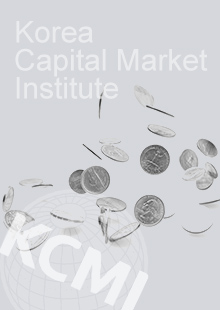Find out more about our latest publications

U. S. Securities Market Restructuring due to Regulation NMS, and Its Implications for Korean Securities Markets
Research Papers 07-01 Mar. 13, 2007
- Research Topic Capital MarketsFinancial Services Industry
- Page 94
This report has the following objectives: first, we introduce and analyze Regulation NMS (hereafter Reg NMS), a new US regulatory environment which is drastically changing the functioning of US stock markets. Second, we discuss the implications of Reg NMS and MiFID (Markets in Financial Instruments Directive), the associated new European regulatory environment, for stock markets around the world. Third, we derive the implications for the Korean stock markets of Reg NMS.
Reg NMS is a set of four rules enacted by the SEC, which is intended to realize the fundamental principles and objectives set up in the 1975 Amendments to the Securities Exchange Act. The SEC released the first proposed draft of Reg NMS in February 2004. After several public hearings, the SEC adopted a revised version in April 2005. Reg NMS is scheduled to be enforced effective October 2007.
Reg NMS consists of the following four rules:
? Order Protection Rule (a.k.a. Trade-Through Rule): This is a rule to guarantee the Best Execution to traders. It requires that orders to be routed to whatever venue has the national best bid or offer (NBBO) price. The Trade-Through Rule was enacted in 1981 under the intermarket trading system (ITS), but did not work well because of outdated linkage technology among the exchanges. Reg NMS requires improvements in the electronic linkage of all US brokerages and exchanges, making the rule more effective, and expanding the rule to all Nasdaq firms.
? Access Rule: This rule guarantees all traders full access, without discrimination, to the NBBO for all the NMS securities, using an appropriate state of the art information technology (IT). It allows NMS trading venues to use private linkage equipped with most recent IT innovation, as well as the current ITS. It limits the access that NMS trading venues can charge for access to no more than 0.3 cents per share.
? Sub-Penny Rule: This rule protects orders at the NBBO price from being outbid by a very small amount. NBBO orders must be beaten by at least 1 cent (1/40 dollar) for a quote above (below) 1 dollar.
? Market Data Rule: This rule requires that market data for NMS securities be consolidated, distributed, and displayed effectively. It also improves the formula for allocating information revenue to the associated self-regulatory organization (SRO) to take into account the contribution to price discovery within the NMS.
The following changes or effects are anticipated in US stock markets soon after Reg NMS becomes effective. First, the niche market for the provision of intermarket linkage will expand and prosper. Trading venues will actively make use of these services to obtain a competitive edge. Second, global investment banks (IBs) will actively found new exchanges or purchase existing exchanges, and fiercely compete for order flow against the leading current exchanges and each other. Third, the SEC will continue to take steps to help the US stock exchanges maintain their leading position in the world.
The enforcement of Reg NMS (and MiFID) has the following implications for the Korean stock markets. First, the enforcement of Reg NMS will trigger discussion about competition and consolidation in the Korea stock markets. The KRX consolidation in 2005 produced a dilemma, since the detrimental effects of the monopoly status of KRX have been realized, while the benefits of indirect competition (within the KRX and against other neighbor countries' exchanges) seem not to have been realized. The legislated monopoly status of KRX precludes the development of “pseudo-trading facilities,” and thus the development of niche markets, for example in overnight trading or intermarket linkage. In turn, this will deter the internationalization of stock trading and the development of IBs and IT associated with stock trading in Korea. Second, IBs could emerge as competitors to the KRX, provided that the legislated monopoly of KRX is relaxed